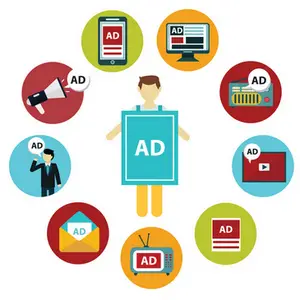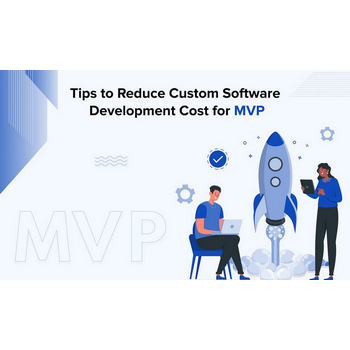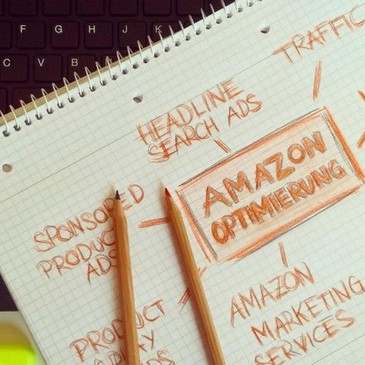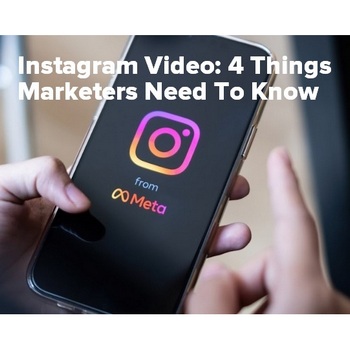Does your small business have a digital marketing budget?
In this new article, we explain why your business needs one and how you can build an effective marketing budget that works for you.
Let’s get started.

Launching a small business calls for hundreds of decisions and tasks, including securing the funds, finding the right employees, and making your business heard of. The latter is often overlooked and left as the last thing to do with the money left over from the seemingly bigger obligations.
However, making your business more visible and reaching a wider customer base is the most important thing you have to do, to secure future profit and stability.
The marketing budget is a crucial factor in your overall strategy and it’s different for every business, depending on the targeted audience and the marketing goal.
But it should, in any case, follow a carefully constructed marketing plan.
In this article, we will provide you with some basic guidelines to help you construct a solid digital marketing budget for a successful strategy.
The importance of digital marketing for small businesses

Before we get to the “how-to” part of this story, we need to be sure you’re taking this seriously.
While traditional marketing still has its role in the business world, the online sphere is becoming increasingly important, especially for small businesses, because of its affordability and availability.
Small business owners often think that they do not have enough money or time to deal with digital marketing, so they just establish some kind of an online presence (a website or a social media account) and leave it to collect dust.
This is a wrong approach, because that’s where your customers are, and they expect to find you there, as well.
Without an active online presence, you’re pretty much invisible.
The perks of digital marketing are numerous, and they include:
- connecting businesses to consumers regardless of their location
- engaging with customers and getting key insights on their profiles
- getting valuable feedback regarding your brand
- improving your odds in the “battle” against the competition
- generating a better cost per lead
Finally, digital marketing is the most cost-effective way of advertising, which allows you to communicate your brand to a wide audience on a shoestring budget.
However, this is not something that just happens.
It takes planning, researching, and putting thoughts into action.
We’ll try to give you some tips to keep you afloat when building a digital marketing budget and keep you ahead of the competition.
Start with a marketing strategy

Think of a marketing strategy as the foundation upon which you will build your digital marketing budget, but also your entire way of doing business.
A marketing strategy is a complex notion, which needs to be observed from various sides.
Here are the key steps you need to take:
Determine the goals of your strategy
The goals of your marketing strategy are the results you want your actions to yield.
While the end goal is always to increase sales and profit, you should also come up with some specific goals based on which you can measure your success, and plan further actions.
Some examples of such goals include increasing website traffic and improving engagement rates on your social media pages.
Get to know your audience
The characteristics of your audience will determine which marketing channels you need to use to convey your message.
In turn, this will define how much money you need for your digital marketing budget to spend on your digital campaigns.
Some of the things you need to find out in order to get the answers you need are:
- the average age of your target group
- their income level
- their location and the characteristics of their geographical position (e.g., rural or urban?)
- the brands your audience interacts with regularly
- the media and the social platforms they use most frequently
- their opinions and ideas regarding not only your company but the entire industry and your competitors as well
Does your small business have a digital marketing budget? In this new article, we explain why your business needs one and how you can build an effective marketing budget that works for you. Click To Tweet
Choose the distribution channels
In the past, there wasn’t much to think about in terms of distributing marketing messages.
We had TV, radio, newspapers, and physical advertisements.
Now, the possibilities are more varied, which makes it that much harder to opt for one or two channels.
Advertising online is definitely the most cost-effective way to spread the word about your services and products.
However, you don’t have to be on every channel, and you don’t have to devote equal attention to every option.
This is especially true of social media marketing, where small businesses often end up spreading themselves thin.
It’s better to have a strong presence on one social network than a mediocre presence on a few of them.
Depending on your target audience, you can focus your social media efforts more on:
- Facebook – probably the most diverse network, with 1.56 billion users around the world active on a daily basis
- Twitter – useful for microblogging, news from the branch, and an urban audience
- Instagram – for a higher-income younger audience
- LinkedIn – for B2B advertising
- Pinterest, YouTube, Quora etc.
Measure the effectiveness of your strategy
The goals you have set for your digital marketing strategy need to be measurable.
Leveraging tools like Google Analytics will help you see which actions result in failure and which work better than you have expected.
With this knowledge, you can change and adapt your tactics in the future.
Also, you can get a more in-depth, humanized look, by organizing focus groups to talk about your marketing campaigns and their impressions.
Dive into your sales funnel
Researching the sales funnel is closely tied with following the effectiveness of the strategy via Google Analytics.
In this case, you’ll need to closely track the results throughout the revenue cycle of your business.
Here are some data that will give you a clearer picture of the effects of your strategy:
- the number of website visits per month
- the number of leads per month
- leads converted to SQLs (sales qualified leads)
- the cost of converting leads into SQLs
- leads converted into opportunities
- the number of opportunities that became new deals
- the average revenue per new deal
You can also use customer relationship management (CRM) software to harvest this data from digital sources.
Base your budget on your income

Now for the hard part.
You need to allocate the funds, but you can’t spend money you don’t have, and you certainly don’t want to spend any more than you need to.
In general, most companies allocate between three and five percent of their revenue to the digital marketing budget, but the amount that works best for you will depend on various factors.
These factors include the capacity of your business, the industry sector, how soon you need to become “popular”, and the amount of growth your business can handle.
For example, if you are just starting and need to build a brand from scratch, you will need to spend much more.
Particularly if you are in the retail business, which requires spending up to 20% of your sales on marketing.
Good advice for businesses earning less than $5 million is to spend up to 8% of their income and to split that money between different brand development costs, such as:
- website design and maintenance
- blog and content
- specific campaigns (social media campaigns, SEO)
- advertising
- organizing events
Note that, in some situations, especially in the early years, you will need an additional push to cover all the expenses.
This can cause you to turn to borrow money.
For this purpose, you can get away with a short-term loan that is available in less than 24 hours, and it can make a huge difference in the marketing results, particularly in the online department where the costs are not very high.
How should you spend your marketing bucks?
Knowing how much to spend is just the first step of this elaborate strategy, and knowing where to spend makes a difference between success and failure.
Because of this, you’ll need to do some research and figure out how much it will cost to carry out your marketing plans.
Some resources are available for free, but even the “no-cost” channels require investments for upgrading or at least for the creative minds behind them.

Digital platforms such as Google Ads and Facebook advertisements can be tailored to your specific marketing campaign, and their cost will depend on the type and length of the promotion.
To use Google Ads wisely, turn to Google Adwords’ Keyword Planner to research the keywords customers are using to find your business.
Target the customers based on language, location, and other specifics.
The expenses that are fixed, such as monthly subscriptions, website hosting fees, and CRM software, are easier to budget, while others can hit your wallet suddenly. These “sunk costs” include hiring a digital designer for custom templates, hiring a website designer, and similar.
The best thing about online marketing, particularly social media, is that you can experiment with different forms of advertising without spending too much money.
Try boosting a Facebook post to reach a bigger audience, or sponsor an Instagram image, and see which platform yields more engagement.
When you learn which audience is more interested in your brand, you will be able to invest more, and so on.
When budgeting a marketing strategy, you should try to get as much “bang for your buck” as you can.
Do that by securing discounts for upfront payments or advertising packages.
This may hit your budget hard at first, but over time, you will see how it was the wiser thing to do.
To outsource or not to outsource?

Every small business needs to make the crucial decision of whether to outsource the marketing department or handle the job in-house.
This decision depends on numerous factors, but mostly you should ask yourself:
Do you have more money to hire someone or more in-house expertise to deal with it on your own?
For example, if you opt for a social media agency to handle that part of your strategy, you need to know that the costs can vary anywhere between $1,000 per month and $20,000 per month.
There are various factors impacting the price, including whether you already have some sort of online presence or the agency needs to start everything from scratch.
For example, launching a new Twitter profile can cost up to $4.000, while restructuring an existing account costs about $1.000.
Facebook marketing costs $2.500, on average.
But if you leave it all to one agency, you might have a chance to get a discount.
Now you need to do a cost-benefit analysis and see which way is the best for your business.
The digital marketing budget isn’t set in stone
When you form a plan and base a digital marketing budget on it, you need to know you don’t have to follow it at all costs.
In time, you may realize that some things have to change.
You may even decide to run an additional campaign to capitalize on the perfect timing.
Knowing that your money goes to all the right places and achieving results is far more important than sticking strictly to a set budget.
As a small business owner, you have more wiggle room to test new outlets and eventually make a turn based on the outcomes.
Online marketing spending trends you need to know about
WordStream’s Online Advertising Landscape in 2019 report states that 29% of small businesses spend between $750 and $2.500 just to collect the data needed for achieving favorable marketing results.
This means that business owners are finally realizing the relevance of quality market research and insightful marketing campaigns.
There are also some trends we can trace back to 2010 when global advertising spend started its uprise.
Digital ad spend is expected to grow to an incredible 53.9% in 2022 (in 2017, it was 39.7%).
The good news for small business owners is that the digital marketing software industry is steadily growing.
That means we’ll be seeing fresh innovations ahead, and these will enable entrepreneurs to compete with affluent brands for less money.
These novelties are followed by one of the biggest trends in digital marketing – programmatic advertising.
This type of ad purchasing relies on software to buy digital advertising without human negotiating and manual orders, and it will be worth more than $65 billion by 2020.
Here are some other hints to keep in mind when investing in online marketing:
- Google is still responsible for almost all (94%) of organic traffic.
- Content marketing costs significantly less than traditional marketing, and it yields about three times as many leads.
- Over the course of two years, the number of monthly active advertisers on Facebook has doubled. Facebook is apparently growing as an advertising platform – there are more opportunities for small businesses, but the competition is also tighter.
- Using Twitter for communication with customers increases customer satisfaction by nearly 20%.
- More than 90% of B2B marketers prefer LinkedIn over other platforms.
- Close to half of users watch product videos before buying a product.
- Pinterest drives one-quarter of all retail site referral traffic.
- Online users prefer products recommended by YouTubers to the ones recommended by a movie or a TV star.
- Email marketing is still a huge thing, with half of the US marketers planning to increase spend in this segment.
Your Digital Marketing Budget: What You Must Know As A Small Business Owner – Takeaways
Wrapping up, digital marketing is one of the most important business operations.
For a small business competing with the big sharks, it’s even more relevant.
That’s why this is not something you should take lightly.
To make it work, you need to develop a strategy and construct a digital marketing budget for it.
While developing a plan, make sure you consider the digital marketing trends that could point you in the right direction.
If, in the end, you decide to outsource the marketing department, weigh your options carefully, and negotiate the best deal with a trustworthy agency.
That’s all for now, so does your business have a digital marketing budget?
Perhaps it is time to start to build your marketing plan.
Regards Dexter
Related Articles
Best Social Media Tools – Here Are 17 To Get You Started
How to Start A Successful Dropshipping Business: Beginners Guide











Lisa Sicard
Hi Dexter, great info! Love the prices you showed for setting up social profiles. (Something to show my clients).
My budget has grown, it was 0 for too many years in the beginning as I was growing the business part time. Once I decided to go full-time I started a little budget and have added to it along the way.
Interesting going over my September #’s, the more I spent on marketing and outsourcing, the more I made 🙂 So it can work!
Thanks for your tips Dexter!
Lisa Sicard recently posted…Why You Need to Start Doing Instagram Stories Now To Grow Your Instagram
Natalia Grace
Hey Dexter. Thank you for such an informative and detailed blog. I recently stepped into the field of digital marketing and these tips are proving to be extremely helpful.
Suzie
Such an amazing post. I used to think that my startup should invest in building products first. After that, I will focus on marketing, and digital marketing in particular, once the company gains some profits. I has changed my mind after reading this post. Without marketing, I can’t sell my products and earn profits.
Suzie recently posted…How to Create Access Links to Unlock Password Protected Pages
shahab
This is awesome work I appreciate you for this great work the information is very useful for me. Thanks again and keep sharing.
shahab recently posted…Static NAT Configuration
Sathish Arumugam
Dexter,
I go with your points. No one can regret that a business can’t be a successful one ignoring digital marketing. When it comes to marketing budget allocation – it is always a challenging one. Being digitalized, – it is made simpler with the tools, services or platforms that we opt for. As you have shown small pricing to create social accounts – everything is upfront. With diligent research, sticking to our favorite tools can help greatly to fix the digital marketing budget. SEO and digital marketing results are measurable. Based on the analytics, we have the liberty to optimize our marketing strategies and campaigns anytime. Glad to see you helping others to plan their marketing campaigns digitally.
Sathish Arumugam recently posted…Grammarly Free Vs Grammarly Premium – It’s Really Worth Buying!
Jeff Romero
This is a really well thought out post. Just as important as the budget is the small business’s ROI. As long as they are making money, they can keep investing in digital marketing and grow.
Jeff Romero recently posted…Fave 5 WordPress SEO Plugins
Dominer
This is a really useful article. It helps young people to be more aware of how to market their products.
Dominer recently posted…[Báo Giá] +30 Mẫu Thiết Kế Nội Thất Chung Cư 3 Phòng Ngủ Đẹp
anzia
Thank you so much for this amazing guide! It is very rare to see so much valuable content and actionable tips all in the same post
Bridget
Great post. Lots of really good information.
But it is possible to spend a lot less than $1000 and still get some basic online content marketing. Check out these packages for one example: https://nobullmarketing.com.au/content-marketing-packages/
Bridget recently posted…Small Business Marketing Survey Results
Artrise Art
This is a really well thought out post. Just as important as the budget is the small business’s ROI
Meraki Holiday Homes
I’m a small business owner I really appreciate you have created content for small business owner.
i will really use this tricks in business and share you feedback soon.
Marlon Francis
Great article for Digital Marketing strategy for SMEs, I will definitely put your guide into practice, please keep up the good work, and I will update you the status.
Digital roy Academy
Brilliantly explained 🙂 more to learn from you :):)
DGSOLUK
A marketing budget outlines all the money a business intends to spend on marketing-related projects over the quarter or year. Marketing budgets can include expenses such as paid advertising,
DGSOLUK recently posted…How to Run Ads in TikTok Ads – Step-By-Step Instruction 2021
Bain
“There are many online marketing methods to advertise products and services online. Classified ad post-marketing is one of them. It is an online introduction and advertisement of business products.
“To increase website traffic, classified ad post marketing is used to promote the product and service that are being offered by the small-scale business”.
It is a cheaper and commonly used method to promote a product online. It includes an eye-catching and brief description of the product that is promoted online.
The term classified is used in the classified ad post-marketing, because all promotions and advertisements that refer to a particular section are classified, and fall under one single heading.”